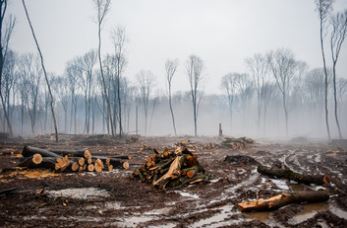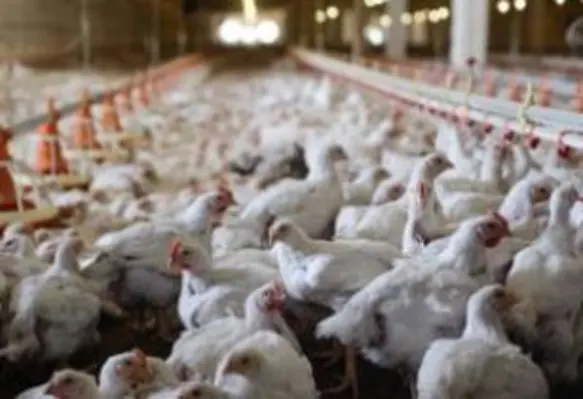The US$19tn-backed FAIRR investor network has identified Asian meat, fish and dairy leaders to meet environmental and social challenges, raising concerns of the poor management of climate emissions, deforestation and antibiotics
It has highlighted that Charoen Pokphand Foods (Thailand) and China Mengniu Dairy Co Ltd (China) are among the top 15 global meat and dairy companies for their management of sustainability issues. However, the FAIRR investor network warned that both also have areas to improve and that the sector as a whole in Asia is lagging behind those of other global regions.
The report further notes a major growth opportunity for ‘alternative proteins’ in the region.
The Coller FAIRR Protein Producer Index assessed 60 of the largest publicly-listed meat, farmed fish and dairy producers. Today, a regional edition is published focusing on 28 Asian firms worth a combined US$189.75bn in market capitalisation and headquartered in China, Japan, Thailand, Saudi Arabia, Singapore, Taiwan, Malaysia, Philippines, Vietnam and India.
Of the total global list of 60 meat, fish and dairy firms: CPF and China Mengniu Dairy were ranked 10th and 13th respectively. CPF was the only Asian company in the Index that addresses deforestation risks linked to its sourcing of soy for animal feed. China Mengniu Dairy was noted for its progress on sustainable proteins, ranking third in the global Index on these criteria due to its dedicated plant-based protein beverage business. The plant-based protein market is expected to grab as much as 10 per cent of the global meat market within 15 years.
Addressing climate change factors
The Index found that Asia’s animal agriculture sector was performing poorly against other sustainability criteria including climate emissions, deforestation and antibiotics. Among the concerns highlighted for investors were:
· Greenhouse Gas Emissions: Around 24 of 28 companies (86 per cent) are categorised as ‘high risk’ in this area as they have little to no disclosure on GHG emissions targets across their operations and supply chain. None of the companies have a science-based target for emissions reduction.
· Deforestation: Asia’s appetite for Brazilian beef and soy creates enormous exposure to deforestation risk for the sector. However, 23 companies (82%) are categorised as ‘high risk’ as they do not report on how they manage deforestation risks linked to soy. CPF is the only firm that has a commitment that 100% of soy will have zero net deforestation and forest degradation by 2020.
· Antibiotics: 27 of 28 companies (96%) are categorised as ‘high risk’ in this area as they have no or limited disclosure on antibiotics management or commitments to limiting antibiotic use. Asian companies score an average of just 8% on their management of antibiotics, the worst of any global region, compared with an average of 50% amongst Index companies headquartered in Europe & Russia. Recent studies have indicated that farm animals in China and India are becoming resistant to common antibiotics, linked to extensive growth in intensive meat systems.

Dr Stephanie Mooij, senior engagement associate, Aegon Asset Management, said, “Meat and dairy companies are significant contributors to climate change, which is why they should not be overlooked. A lack of transparency by Asian and other protein producers on their management of critical sustainability issues makes it difficult to conduct a thorough ESG assessment. That’s why Aegon Asset Management has launched an engagement project focused on uplifting these management standards and the Coller FAIRR Protein Producer Index is a comprehensive tool to inform our ESG assessment and engagement efforts in areas from GHG emissions and water to antibiotics and animal welfare.”
Rebecca Lewis, managing partner, Arisaig Partners, commented, “The enormous latent demand for meat in Asia, and in particular, China, represents one of the greatest environmental risks to the planet if managed unsustainably. This is a global issue with supply chains crossing the map, contributing to some of the most critical environmental threats such as deforestation, methane emissions and water scarcity. The Asian agricultural industry must do more to manage their environmental and social footprint if they are to maintain their license to operate in tomorrow’s world.”
Jerry Goh, investment manager, Aberdeen Standard Investments, noted, “The research for the Coller FAIRR Index gives us valuable insights into the US$320bn animal agriculture supply chain. It tells us that Asia food companies have been beneficiaries from the growth in global protein consumption, whilst highlighting the negative environmental and public health impacts for the animal agriculture sector. It is good news to see leaders emerge in Asia, with three Asian firms in the top 10 global meat and dairy companies for their management of sustainability issues. But the research also informs that investors need to engage Asia’s protein producers to be more aware of food safety and practices, and to develop more sustainable business operations to better manage their long-term risks.”




